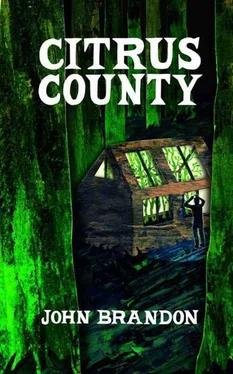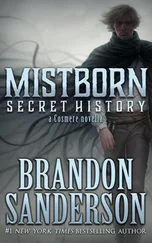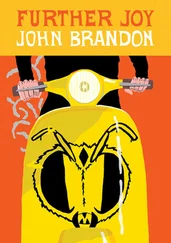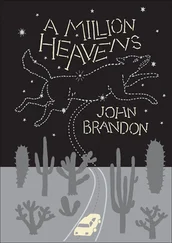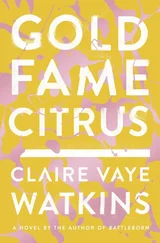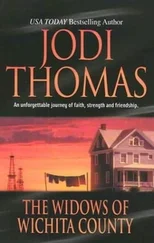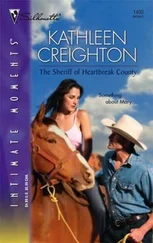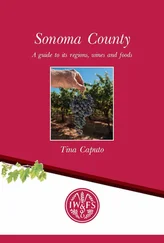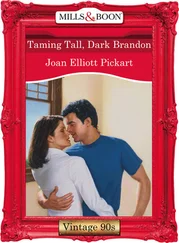Toby looked at Shelby, then back at her sister.
“How was detention?”
“Same as always,” Toby said. “I won.”
Shelby’s sister was swinging higher and higher, getting the chains parallel to the ground. This didn’t seem to make Shelby nervous.
“Do you watch Comedy Central?” she asked.
“I don’t have cable.”
“Is your uncle a hippie?”
“How do you know I live with my uncle?”
“Everyone knows that.”
Toby squinted. The sun seemed aimed at him. “His income is up and down,” he said.
“They had this guy doing this stellar bit about Hot Pockets.”
“I eat those,” Toby said.
An active old couple peddled by on mountain bikes. They waved to Toby and Shelby, who watched them until they rounded a thicket.
“What’s your sister’s name?”
“Kaley.”
Kaley held a big toy watch. She wasn’t wearing shoes.
“Are you going to be late to tryouts?” Shelby said.
“I’ll make the team. Nobody else wants to pole vault. It’s not even supposed to be a middle school sport.”
“Then why is it?”
“The superintendent. He instated it after he married this lady from Finland.” Toby couldn’t keep his eyes off Kaley. Her hair was glinting like a fishing lure.
“He did it for love,” Shelby said. “He made pole vault a sport for love.”
The cloud wasn’t like a boulder anymore. It was like a scoop of something. It slid in front of the sun and Toby could see. There was nothing to look at but Shelby and her sister, her sister’s filthy feet.
“Would you recommend that island with all the monkeys on it?” Shelby said. “I have to find outings for my family. What’s left of it.”
“What island with monkeys on it?”
Shelby tipped her chin. “Down by Homosassa Springs. Monkey Island?”
“I don’t go on outings.”
“You’ve never even heard of it?”
“Not till now.”
“Well, it’s there. They filmed a Tarzan movie and left the monkeys.”
Toby shrugged. He didn’t care about movies or monkeys. He watched Shelby adjust herself on the bench, then push the newspaper farther under her.
“If you ever want to kiss me,” she said, “not that you currently want to or anything, I would be okay with that.”
Toby felt panic wash through him. He tried to nod.
“I wasn’t telling you to kiss me. In fact, don’t. It would be too weird now. I said that for future reference is all. Just so you know.”
Toby stood up from the bench, finding his balance. “Future reference,” he said. He stumbled getting back to the sidewalk.
Toby caught the last forty-five minutes of the tryout. It was the first day, so the group had not been broken into events. Toby joined the herd and jogged laps. He did push-ups. He drank from the coolers. He kept seeing Shelby’s sister swinging easily up toward the clouds and then losing steam and zipping back toward the mulch, her feet and her hair.
Toby saw himself moving around the field as if from above, as if from a sleepy hot-air balloon. He saw the big girls that threw the shot and the discus. They had bulky upper bodies and lean legs. They wore sweatshirts and shorts and toted a half-gallon of water in each hand. Toby saw Vince giving out Gatorade gum. He saw Coach Scolle, his head of slick curls and his whistle and his distasteful glare. Coach Scolle knew Toby didn’t belong at his tryout. Toby felt his lungs burning. Something had occurred. Toby had decided on something. He saw the bare pines jabbing the sky in the distance. He felt the cool, incurious ground when he collapsed on his back after the laps.
That evening Toby skipped dinner and went to the bunker. He listened to his breathing and to busy drones that seemed to come from beyond the bunker walls but that also could have been coming from his mind. For a while, a tint of light came in from above, through a small vent, but once the sun set Toby couldn’t see anything. He had candles but he didn’t light one. And so he couldn’t see the big railroad ties that stood in each corner for support. He couldn’t see the spider webs or the pale roots that hung limply from the earthen walls. There was nothing down here but what you brought. Toby thought about the way some of the other kids had looked at him when he showed up for the track tryout. He thought about his hunger, which he could ignore until it went away. He thought about Shelby Register and her little sister, and about their dad who probably patted their heads all the time and watched them sleep and gave them five dollars for each good report card grade.
When Toby was in the bunker, he never knew how much time was passing. He heard voices sometimes, nothing he could understand. He heard whimpering. He heard static. It was all in his imagination. It took hours in the bunker for him to clear away all the chatter from school — blabbing teachers and gossiping classmates and orders from coaches and stupid announcements over the PA.
His back was stiff when he stood up from the folding chair. His sweat had dried on him. He wanted to know who else had been down in this bunker and who had built it. Toby had been meant to find it. Toby wasn’t another hard-luck case. He wasn’t another marauding punk. He’d been acting like one, thus far, but he was destined for higher evil and he could feel that destiny close at hand. He was more terrible inside than every juvenile delinquent in the whole county put together.
Mr. Hibma managed to stretch the genealogy presentations into a three-day affair, giving him a break from lecturing and from compiling trivia fodder. There were only a few kids left who hadn’t dispensed the uneventful lives of their recent ancestors. Mr. Hibma was seated low behind his desk, studying the basketball binders. He’d have to rename these plays. Instead of yelling out Ivy League schools, his point guard would bark mixed drinks and famous assassins. Mr. Hibma found a rulebook in one of the binders, and a list of basketball terms. Pick and roll he knew. Backdoor cut . What the hell was a match-up zone?
Mr. Hibma looked up and called on Shelby. She never volunteered for anything because she didn’t want to be a kiss-ass, but she was always prepared. She got up and spoke about her mother’s family. Her great-grandparents had owned a cane shop, back in Belgium. Their daughter, Shelby’s grandmother, had come to visit the States, fallen in love with a history teacher, and never returned to Europe. She and the history teacher had hosted a series of foster children before finally conceiving Shelby’s mother. One of the foster children had become famous in art circles, a woman named Janet Stubblefield who had dropped out of high school to become a hippie. She became expert at constructing mobiles out of old boots, and against her will she developed a following. People from all over began making art out of shoes. The whole business put Aunt Janet off. She moved to rural Tennessee and became a hermit and died in middle age. She had told everyone to stay away, that it was important to her to die alone.
Shelby dropped her note cards in the trash and sat down, light applause playing about the room. She hadn’t mentioned her mother. She’d chosen her mother’s side , but she’d cut the history short. A kid could really get sick of having a dead parent, Mr. Hibma imagined. These kids were all sad or crazy, and most of them had reason to be.
Mr. Hibma asked for the next presenter and a girl named Irene, who’d worn a sweater set and heavy makeup, got up and said some things and retook her seat. Toby was next, the only one who hadn’t gone. He’d chosen his father’s family, the family whose name he bore: McNurse. They’d moved from Ireland to Canada at the turn of the century, a well-off family who’d chosen to immigrate to Canada instead of the United States because it was harder to get into Canada. Most of them had died in the forties in an accident. An avalanche.
Читать дальше
